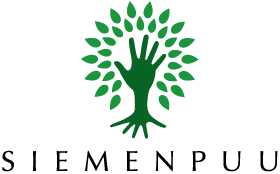[Ruby van der Wekken] It’s Friday 20th of November in Bamako, Mali. This morning, the news upon waking up in my hotel was given by a colleague that an attack and hostage taking is going on at the Radisson hotel downtown. In the following moments it sinks in, that this is the same hotel where we were yesterday with our partner Mali Folkecenter (MFC) for the third event of this year’s FENA national environmental forum, and where we were meant to be continuing today. The second day’s discussions were supposed to be on renewable energy in Mali. As I am writing this blog, some hostages are being released. We all here are condemning the attacks and extremely sorry for the lost lives.
This happens one week after arriving here in beautiful Mali. On the day of my departure from Helsinki on Friday 13th, the attacks in Paris took place. We talked quite a lot that weekend about the attacks. We also talked about Mali’s debt, how it prevents this country from investing into the future of its population, for instance on education. IMF and WB policies have forced Mali to open itself to extractive foreign companies. Mali is Africa’s third largest producer of gold, but not much of that revenue stays in Mali. Naturally also the role of France has been discussed here these days. In Northern Mali the resource exploitation rights, trade and military intervention are interconnected.
In this context, Malian youth will be graduating, with no jobs to take on. The result is, as elsewhere in the South suffering from similar policies, a rising number of citizens which are vulnerable to extremist discourse and calls to action. The talks last weekend pointed to the fact that, if Europe thinks it can be an on an oasis while elsewhere in the global South so much misery is being created, it has got it wrong.
Siemenpuu’s cooperation with MFC has notably taken place under the Sigida Nyetaa (SN) program, which can be described as being about the supporting of the local co-governance and sustaining of environmental commons, and in function of this the development of local economic activities. This week the discussion of the first two days took place in the city of Sikasso around (artesenal) mining. The discussion made it clear that without strong alternatives, the lack of circulating funds will keep on pushing people to the artsenal mines, despite their considerable negative social, cultural and ecological consequences. The development of such alternatives is much what the SN program is about.
On Wednesday, we were in the town of Bougouni, where people and government representatives discussed the sustainable governance of forest resources. How to enable people to engage in sustainable livelihood activities? So, for instance MFC has been supporting local population to come to local conventions, in which via a participatory process is written down for instance what areas must not be mined open. This Thursday then we were back in Bamako, for discussions around the development of renewable energy in Mali, posing the question as to why Mali buys up such expensive unsustainable energy, when it has the capacity to meet its needs via renewable energy. Renewable energy sovereignty is of course indispensable for the development of local ecologically and socially sustainable livelihoods.
The phone does not stop ringing here in the lobby of the hotel. Apparenty a false alarm regarding an attack has been announced in the hotel where I am now. Of course there is an atmosphere of panic. Whilst also I feel worried as to what is going on, I realise once more all the more how important the support of Siemenpuu is to its partners and their activities which are trying to face up to the whole of these realities, and which believe another world is possible.
Ruby van der Wekken
Writer is a program coodinator at Siemenpuu Foundation
